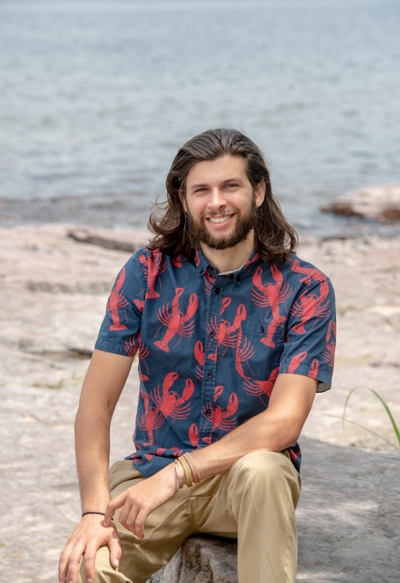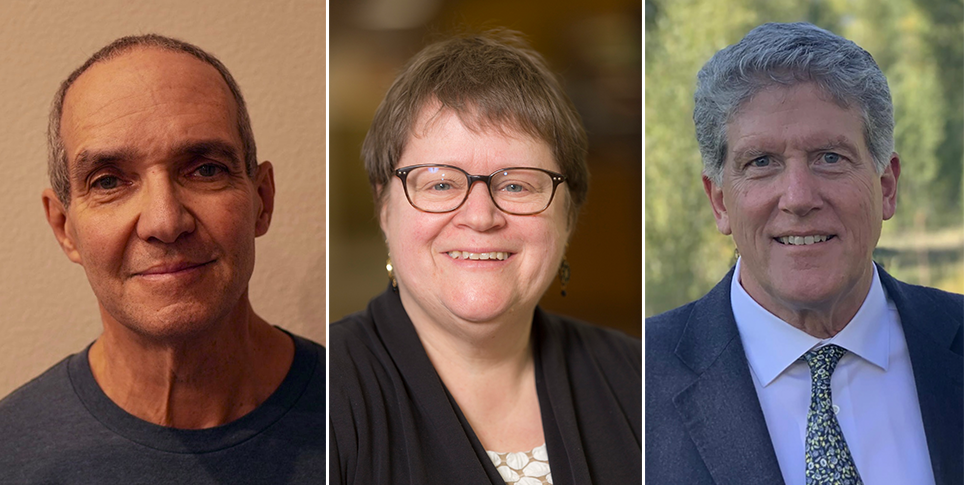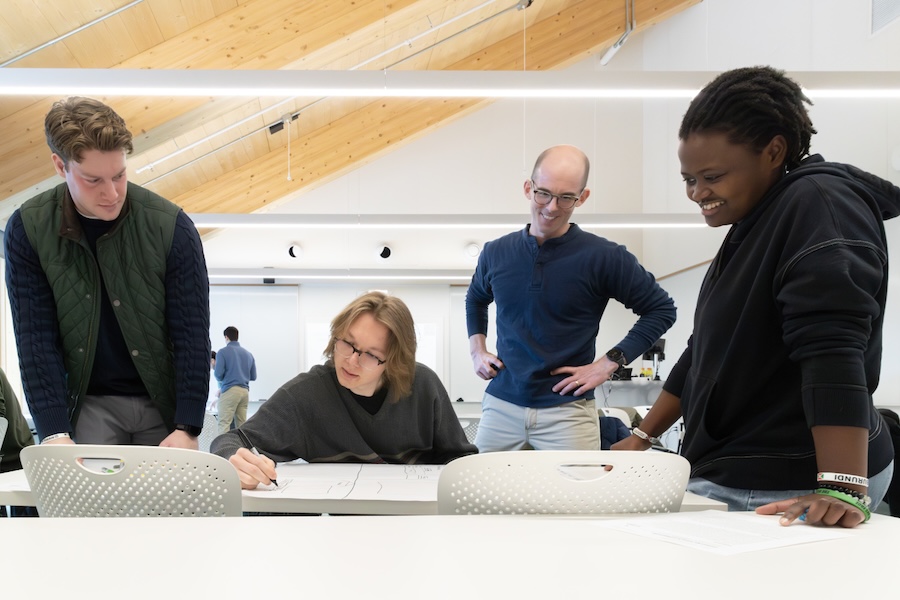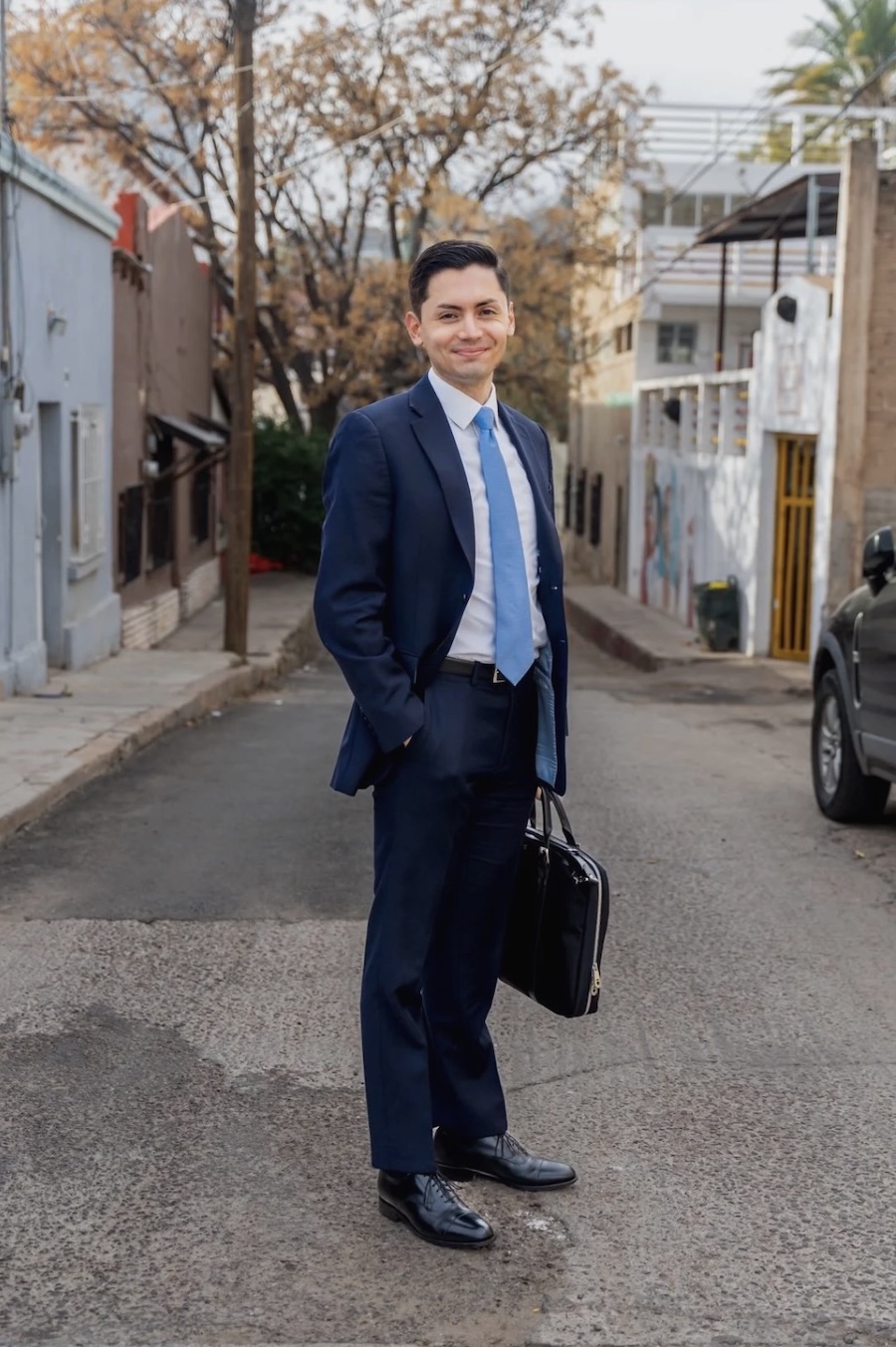Bridging the Gap between Science and Management
By Tom PorterWhen he learned he was a finalist for a prestigious Knauss fellowship, Andrew Villeneuve ’16 was “elated.” He still had to survive an intensive selection process, however, which involved interviews at twenty-one different federal offices in one week.

That was in October 2020. Now, three months later, Villeneuve is one of a handful of young marine scientists preparing to undergo a year of policy training as a Knauss fellow, in a program administered by the National Oceanic and Atmospheric Administration (NOAA).
It was in the final year of his master’s in environmental conservation at UMass Amherst that Villeneuve realized he wanted to be better trained to bridge the gap between science and management, which made the Knauss fellowship an ideal goal. The fellowship places recent graduate students involved in marine and Great Lakes research in one-year positions in the federal government to learn how science gets translated to policy at the national level. “Many fellows are focused on scientific research in graduate school but want to understand the policy-making process behind much of our nation’s natural resource management,” he said.
Villeneuve will be working with the head office of the National Marine Fisheries Service within NOAA. “My fellowship year will be split generally between two focus areas: the coordination of Arctic research priorities and the development of a next-generation fisheries assessment program,” he explained. “I am particularly excited about understanding the needs of various groups in the Arctic, and at a national level in using science to help solve diverse resource management problems.”
After graduating from Bowdoin with a biology major and French minor, Villeneuve worked in a variety of seasonal positions, ranging from wilderness surveying in the California Sierra Nevada and stream monitoring in the Caribbean to guiding backpacking trips in West Virginia and collecting data on scallop aquaculture in Maine.
“My postgraduate research at UMass Amherst focused on better understanding how populations of a single species vary in their sensitivity to climate change, using an invasive marine snail as a study species.” He was attracted, he said, by the opportunity to learn more about how the impact of human activity on the environment can affect an organism’s vulnerability.
“We are collectively facing enormous environmental challenges in the form of habitat loss, biodiversity loss, and climate change that ultimately threaten the livelihoods and resilience of human communities. While basic research is critical to understanding interactions within the environment,” explained Villeneuve, “the magnitude and speed of ecological decline in the Anthropocene [i.e., the human era] stirred me to better understand how science can improve decision-making.”
Due to the pandemic, Villeneuve will be working remotely for the foreseeable future, although he remains hopeful that, if restrictions are eased, he will work at NOAA’s Washington, DC-area headquarters, as well as visit some of the agency’s science centers across the country. “In particular, I would be thrilled to complement my Arctic portfolio by travelling to NOAA’s Alaska offices,” he said.
"The magnitude and speed of ecological decline in the Anthropocene stirred me to better understand how science can improve decision-making.”
Looking beyond the internship, Villeneuve is considering either enrolling in a PhD program or exploring potential roles in state and federal government or NGOs like The Nature Conservancy. “What I really love doing is being in the field doing science and solving problems,” he said, “so, wherever I end up after this fellowship, I hope to bring what I learn about the policy behind our nation's resource management and conservation initiatives. Returning to Maine would be wonderful,” he added.
Reflecting on his Bowdoin education, Villeneuve credited the close relationship he developed with some of his professors as being a crucial factor in his academic achievements. “Professors Dave Carlon and Sarah Kingston especially helped guide my path when I took part in the inaugural Marine Science Semester (BMSS) in 2015, an incredible experience that I fully believe helped open doors for internships, graduate school, and eventually this fellowship. From learning to code in R, writing research proposals, and communicating our research, much of the experiences gained through BMSS helped me navigate graduate school and professional experiences effectively. Finally,” he added, “the intensive writing component of many Bowdoin classes prepared me to write well and efficiently. Writing was by far the most useful skill I have gained at Bowdoin and is something I will be using every day as a Knauss fellow.”



